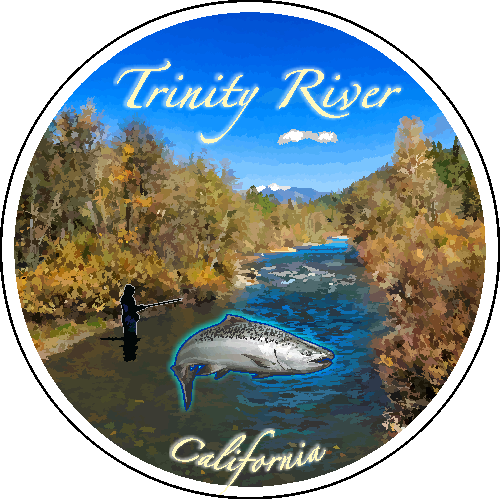Hiking & Backpacking
The Trinity River and many of its tributaries begin in the Trinity Alps and Scott Mountains that span across northern Trinity County. There are over 600 miles of trails in the Trinity Alps Wilderness, the second largest wilderness area in the state. The mountains feature dramatic peaks, refreshing alpine lakes, colorful meadows, and crystal clear creeks. If you plan on backpacking in the wilderness area, you will need to obtain a wilderness permit at the Weaverville Ranger Station (360 Main St) or Fire Stations (Mule Creek & Coffee Creek off Hwy 3 AND Junction City & Big Bar off Hwy 299). If you plan on having a campfire, you will need to obtain a campfire permit at one of the above locations.
Fishing
The Trinity River is legendary for its salmon and steelhead fishing by drift boat or at wade-in riverside spots. There is also a world class fly-fishing area from below Lewiston Dam to the Old Lewiston Bridge. Steelhead are the most sought-after sportfish on the Trinity, closely followed by chinook salmon. Brown trout are non-native to the watershed but were heavily stocked until the late 1970s and are still fished for today. There are many developed and undeveloped public access points along the river corridor to launch a boat, fish from the shore, or simply go for a refreshing swim! Visit the California Department of Fish and Wildlife website for up-to-date fishing regulations.
BOATING
Rafting on the Trinity River can range from a relaxing float to an exhilarating whitewater experience. The most extreme stretch of river is the Burnt Ranch Gorge, featuring Class IV and V rapids. Whether you are drifting through the calm pools, or navigating difficult rapids, a day on the water is bound to give you a new perspective of the river and introduce you to some of the Trinity River’s diverse wildlife! There are many local rafting companies along the Trinity River including: Trinity River Rafting, Six Rivers Rafting, Bigfoot Rafting, Redwoods and Rivers Rafting, and Old Bridge Rafting & Guide Service.
LEAVE NO TRACE
Regardless of how you recreate, it is vital we all take care of these natural places. Practicing environmental stewardship, and encouraging others to do the same, will keep the Trinity River watershed healthy and safe for flora and fauna, as well as other people!
Important stewardship practices to follow: Dispose of waste properly – whether it is trash or human waste! If you see trash in or near the water and you can safely dispose of it, do so.
Respect wildlife – do not feed or disturb wild animals Be careful with fire – always practice proper fire safety to reduce the risk of wildfire Know before you go – Before you recreate, make sure you know the relevant information including river flows, weather forecasts, and road conditions. Don’t get caught in a situation you aren’t prepared for!
For more Leave No Trace guidelines
